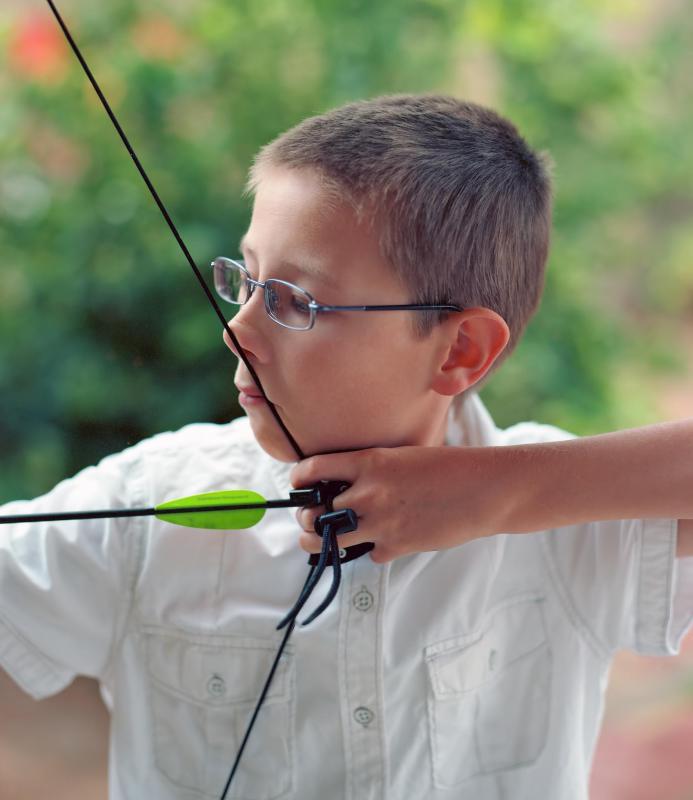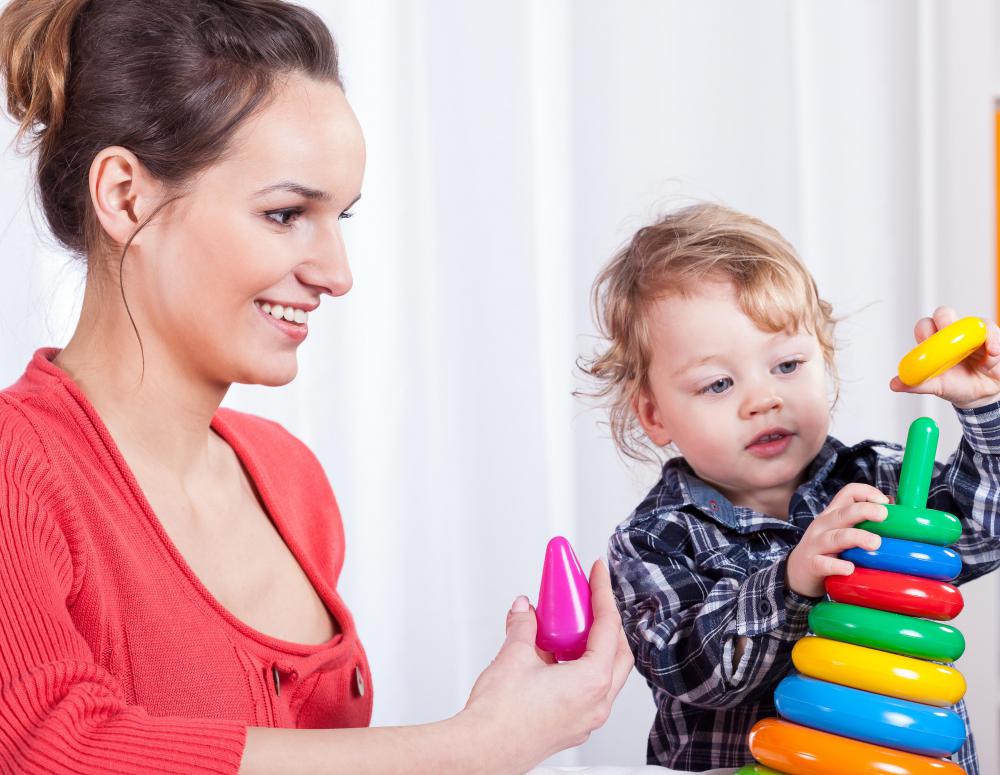At TheHealthBoard, we're committed to delivering accurate, trustworthy information. Our expert-authored content is rigorously fact-checked and sourced from credible authorities. Discover how we uphold the highest standards in providing you with reliable knowledge.
What Are Psychomotor Abilities?
Psychomotor abilities are skills such as hand-eye coordination, balance, and reaction time that arise from a unity of cognitive and physical functions. All healthy people develop some psychomotor abilities during the course of early development, and many people choose to develop those abilities further for work, athletics, or other activities. A baseball player, for instance, needs to develop his hand-eye coordination and reaction time more so than a normal person in order to consistently hit the ball. Psychomotor learning is the process by which individuals build the cognitive and physical connections necessary to gain such abilities. Over time, as one practices such abilities, the cognitive aspect becomes less and less important, as the action itself becomes automatic.
Developing a psychomotor ability requires the development of both the cognitive and physical aspects of that ability. An individual who wants to learn to dance, for instance, cannot simply read a book on dance techniques to become an expert dancer. He must also spend a substantial amount of time practicing the conceptual skills he has learned. Only through this unity of conceptual knowledge and physical practice can one actually develop new psychomotor abilities. With practice, these abilities tend to become automatic and will cease to require much thought — the dancer, for instance, will be able to perform dances that he has practiced without running through the steps in his mind.

Many different skills and activities require the development of psychomotor abilities. Basic skills learned during early development, such as walking and jumping, required the development of such abilities. Many skills developed later in life for personal or professional reasons, such as typing on a keyboard or driving, also involve developing psychomotor abilities. Such abilities are based on applying a combination of more foundational psychomotor abilities, such as hand-eye coordination, multi-limb coordination, orientation, and control of movement speed.

The cognitive, associative, and autonomic stages are the three main parts of the development of new psychomotor abilities. In the cognitive stage, the learner very deliberately attempts to direct his physical movements based on his conceptualized cognitive ideas, usually resulting in slow and awkward movements. The associative stage involves less thought and is marked by an increase in automatic movements. By the autonomic phase, the necessary movements have been committed to "muscle memory," and the learner no longer needs to think about them in order to perform them. The learner can still improve and refine the learned movements through practice, though, so it is not necessary to achieve perfection the first time.
AS FEATURED ON:
AS FEATURED ON:

















Discussion Comments
A manic bipolar person with Asperger's says: Imagine walking and not feeling your legs moving -- just mechanical fluid motion taking you the distance as your reflexes fuse leg with leg. It's the motion of one, yet the motion is anticipated by the other having an increase in response time while actually voiding the effort because the known action is carried out aside from more important mental functioning.
Ever cut a yard and get into it and kind of zone out and before you know it, it's done? Now imagine the dances some of those cool guys do that almost look like they are boogieing while having a seizure. Yes, psychomotor learning can result in bizarre physical ability. Ever drop something and you immediately catch it before it hits the ground, before it falls out of your arms or whatever?
With increased psychomotor functioning, dropping something can make the accelerated appear freakish while using the quickness. I have personally been siting in a group of people sitting in a circle discussing a topic, and as everyone took their turn, I waited with hyper-vigilance of the quickness. I was a still form, then it was my turn to share. From a still seated position, I snapped into the standing position immediately while stating my discussion input with calm affect. As sitting went to standing, a wave of exhilaration passed through those seated and the guy farthest from my position was hit with the motion and am amusingly, was elevated up out of his seat with much bewilderment.
A sense of humor resides within the Bipolar type 1, to such an extent those around may develop paranoia.
@bythewell - With that said, I do think that it depends on genetic ability as well as practice. There are some people who will be able to develop better balance than others, given the same amount of training time.
If that wasn't true, then everyone would be an Olympic athlete and everyone would be able to walk a tightrope over the Niagara Falls.
@pleonasm - I think it feels like it's impossible to do anything about making these sorts of abilities better, but it's definitely true that you can improve them if you work on them. I mean, if you think about it, people aren't born tightrope walkers either. They learn how to keep that high level of balance by practicing it all the time.
And of course, a lot of people learn how to touch type and can do it without having to think about it. It's quite amazing how quickly your fingers can type if you're really good at touch typing.
Another interesting one that I think probably counts as psychosocial is the abilities that some people develop when they are compensating for a disability. Like the blind people who manage to navigate through echolocation. I don't think they consciously calculate every single sound that comes into their ears. They learn how to do it without thinking.
It's really amazing what the human body is capable of when you put your mind to it.
My father was a coach and a basketball player and he always said that one of the most important things for a beginning player is to develop their hand-eye coordination.
When he was a kid he wasn't all that good at playing ball. Dribbling especially was difficult, as most people find it to be. So my dad used to practice all the time, any time he had a ball and was able to do so. He'd just bounce it against the wall and against the floor over and over, so that his hand learned how to control the ball indefinitely.
Eventually his psychomotor abilities were so good that he would never lose control of the ball, no matter what was happening on the court. Dad always used to say that was what gave him the edge over other players.
Post your comments